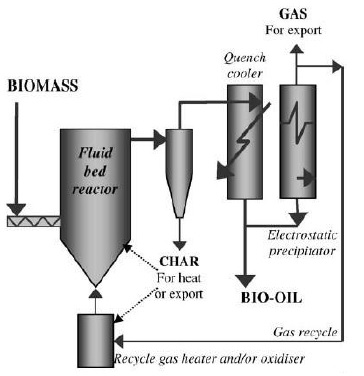University of Washington researcher Fernando Resende is getting ready for the day that we run out of fossil fuels.

Originally from Brazil, Resende, an assistant professor in the UW’s Biofuels and Bioproducts Laboratory, that same lab that received a $40 million infusion from the U.S. Department of Agriculture, is working on a parallel project to turn dead trees into fuel that power cars, and, someday, planes and other machines. These “drop-in” fuels use existing technology designed to be integrated with current-generation infrastructure and engines.
“We want to make a fuel that [can be turned into] gasoline,” he said. “That’s what we’re chasing now.”
Within several decades, up to a third of all the transportation-fuel needs in the country could be met using these biofuels, he said. Electric cars are one thing: fuel for planes is another. Biofuels could be an important bridge to a future without fossil fuels, he said.
As example of this, Alaska Airlines, among aviation companies, has been experimenting with alternative fuels for several years now, and is very interested in the type of work Resende is doing. The idea is to harvest diseased trees, specifically lodgepole pines, killed by the mountain pine beetle in the Mountain West, where up to four million acres have been infected.
Normally, these trees fall and rot on the ground, increasing forest-fire hazards.
Right now, in the lab, Resende and his team of three graduate students can make gasoline from dead biomatter — from ground up tree trunks, the dryer the better. Working with a $200,000 grant of their own, the goal will be to build mobile reactor units that can make the fuel on site, in the forest.
This “fast pyrolysis” process involves heating finely ground wood up in chamber without oxygen to more than 500 degrees Celsius; the vapor that results is quickly cooled down to room temperature. The liquid that results is processed and made ready for powering engines.

But the tipping point with these kind of biofuel endeavors will be the cost of gasoline.
Clare Ryan, also at the UW, and a professor of environmental policy, said that challenges remain, not all of them technological.
“There’s a lot of effort nationally to become more fuel independent,” and move away from important gasoline and other less sustainable fuels, she said. But looking at the local level, there are issues involving the use of federal versus state and private lands (the latter two can be harvested for dead trees, while the former typically can’t, at least not in Washington state).
“It all depends on the price of oil,” she said. The “technical quest,” she said, is just part of a larger movement involving the development of wind and solar power, and the policies and local political support to make that happen.
At this point, in the relatively early stages of spin-offs from the UW-WSU grant, there are a number of unknowns.
But the promise of reducing our dependence on dirtier fossil fuels, and instead using non-edible biomass as a basis for fuel, is too promising to ignore, she said. Both Ryan and Resende believe in the long-term viability of these endeavors, despite the challenges.
Ultimately, it’s “taking what is dangerous and turning [it] into something useful,” Resende said.
Will Mari is a PhD candidate in the University of Washington’s Department of Communication. He studies media history and the history of tech. He also tweets about etymology @willthewordguy.



